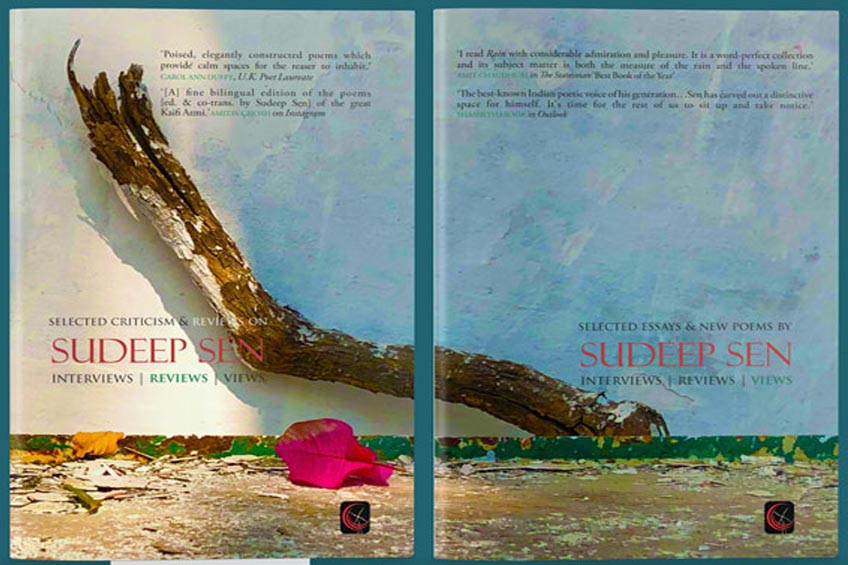Burning Ghats, Varanasi

Overheated flaming pyres of the burning dead,
partially shields my sight of river Ganges —
its fast muddy currents eddying the floating lamps,
bathing bodies,
remains of corpses, flesh-bone ash.
At Manikarnika Ghat, a mixture of sanctity and stench
rises from silted sands and wooden armatures —
fire-aided decomposition of human flesh —
the offerings swiftly lapped up by roaming animals.
An emaciated sadhu with wild-knotted dreadlocks,
perched precariously on a bamboo frame
on the edge of the river,
dreams of alms that might come his way,
even at this late hour.
Presiding priests, feed ritual ghee
to the burning wood-and-dead —
its flames forming huge flares,
fragmented waves of golden-amber spark,
electrifying helical fire-flurries —
a living, crematorium drama.
A young boy scratches his newly-shaven head,
a pot-bellied man immerses himself in the river,
stray dogs bark, cows groan, loudspeakers bray.
Gandhi’s posters ghat-side walls preach peace, non-violence.
Amid so much noise,
the business of death being transacted
carries on, without any emotion or fuss.
Saffron-robed men on ghat-steps
sit in yoga postures, praying —
a silent quest —
what does prayer amid all this din and commerce
get you anyway?
Medley of bells, conch, chant, fire, water, boat, people
ceases to be a cacophony after a few hours —
variant decibels melding into a drone, a trance —
where the only balance that exists,
is in our minds.
Bare-headed, bare-bodied young men,
draped in swathes of pure cotton,
foreheads smeared in sandalwood and vermillion
carrying ash-filled earthen pots —
walk past me towards the river-edge,
detached —
eldest sons performing last rites for their dead.
White-clad teachers squatting cross-legged on the ghat
under large circular cane-parasols
impart teachings from the Upanishads and Vedas
to young priests-in-the-making.
Illuminated cane-lanterns
hang on long bamboo poles curving skywards —
homage to the memory of martyrs —
guiding light for heavenly apsaras
descending during the Kartik month to bathe in Kashi —
as oil-soaked wicks flickering on beds of rose petal, sail
catching the waves’ moods.
In the super-heated pyre, I hear another ritual pot break,
another skull crack, another soul take flight.
I see some shore-temples slow-sink
into the swallowing river —
effects of unpredictable tides and climate change
taking with them, both the mortal and the immortal —
Holocene’s carbon-footprint — its death text, unceasing.
Ashes to ashes, dust to dust —
water to heavy water, life to after-life.

Sudeep Sen’s [www.sudeepsen.org] prize-winning books include: Postmarked India: New & Selected Poems (HarperCollins), Rain, Aria (A. K. Ramanujan Translation Award), Fractals: New & Selected Poems | Translations 1980-2015 (London Magazine Editions), EroText (Vintage: Penguin Random House), and Kaifi Azmi: Poems | Nazms (Bloomsbury). He has edited influential anthologies, including: The HarperCollins Book of English Poetry (editor), World English Poetry, and Modern English Poetry by Younger Indians (Sahitya Akademi). Blue Nude: Anthropocene, Ekphrasis & New Poems (Jorge Zalamea International Poetry Prize) and The Whispering Anklets are forthcoming. Sen’s works have been translated into over 25 languages. His words have appeared in the Times Literary Supplement, Newsweek, Guardian, Observer, Independent, Telegraph, Financial Times, Herald, Poetry Review, Literary Review, Harvard Review, Hindu, Hindustan Times, Times of India, Indian Express, Outlook, India Today, and broadcast on bbc, pbs, cnn ibn, ndtv, air & Doordarshan. Sen’s newer work appears in New Writing 15 (Granta), Language for a New Century (Norton), Leela: An Erotic Play of Verse and Art (Collins), Indian Love Poems (Knopf/Random House/Everyman), Out of Bounds (Bloodaxe), Initiate: Oxford New Writing (Blackwell), and Name me a Word (Yale). He is the editorial director of AARK ARTS, editor of Atlas, and currently the inaugural artist-in-residence at the Museo Camera. Sen is the first Asian honoured to deliver the Derek Walcott Lecture and read at the Nobel Laureate Festival. The Government of India awarded him the senior fellowship for “outstanding persons in the field of culture/literature.”




SUDEEP SEN
Write your comment here